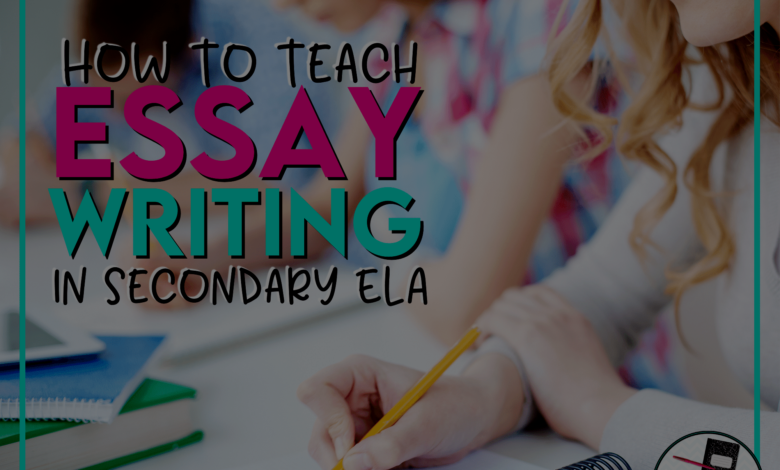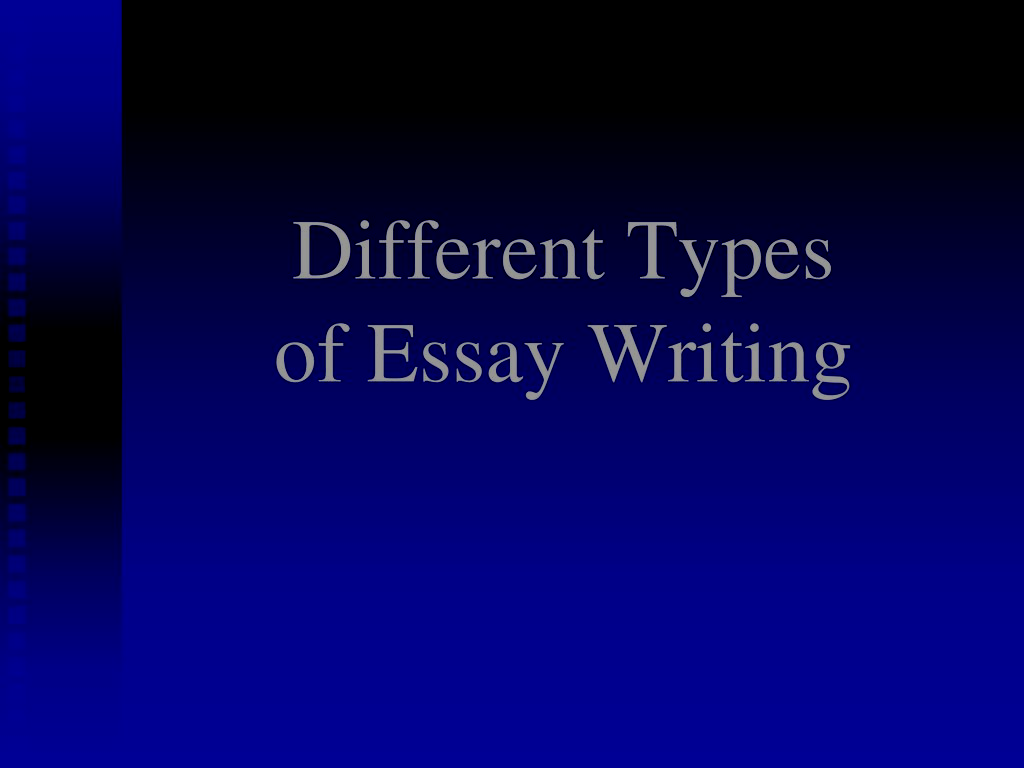How to Write an Essay that Gets an A Grade in Essay Writing 101

Essays are a vital component of schooling. The ability to write an essay is a crucial skill to possess, regardless of whether you have been writing essays since middle school or you are getting ready to write your first one at a university. Furthermore, some organizations and enterprises could ask you to produce a report or essay in addition to academic writing.If you’ve been assigned an essay to write and you’re not sure where to start or you’re feeling a little out of practice, you’ve come to the correct place. Everything you require to write an essay will be covered in our tutorial. You will get knowledge about essay structure, essay planning, and—possibly most importantly—essay conclusion.

We’ll also go over the many kinds of essays you may be required to write and the best way to approach them.
What is an essay?
First, let’s dissect what an essay actually is. An essay is a piece of writing in which the writer expresses a viewpoint, a feeling, or attempts to start a discussion. It’s frequently employed to convey the author’s thoughts in a non-fictional way. It can encompass almost any subject in the globe, ranging from art criticism to political conversation and all in between.
Essays typically have a minimum word count of 500 and typically range from 1,000 to 3,000 words, however they can be much longer. The essay must be at least a minimum of two pages in order to give the author the space to develop their case and persuade the reader.
Why do we write essays?
Essays can be produced for a variety of purposes, such as providing clarification on concepts and facts or aiding in the understanding of the subject matter by others.Creating essay ideas is a fantastic method to understand the significance of the article.
Composing an essay can also improve your overall writing abilities by enabling you to communicate your thoughts and ideas. Of course, essays aren’t just used in academic settings. Why not write an essay if you have strong feelings about something and want to express them to others, or if you disagree with the general consensus and want to persuade people of your point of view?
Writing an essay, also referred to as a report in the professional world, may be required of you at work. Reports are meant to inform peers and superiors about your work on a particular project as well as any conclusions you may have drawn.
Read More:How come you should study French in 2024? Five motives to give it a go
What are the different types of essays?
Essays can take on a wide variety of forms and dimensions, just like any other type of writing. The assignment will usually specify the kind of essay you must write, so you won’t have to worry about it. For example, the format for an admissions essay and a reflective essay are different. Essentially speaking, though, your essay will be either personal, professional, or scholarly.

Although there exist an infinite variety of essay formats, we will examine some of the more prevalent forms that you are likely to encounter and be required to finish.
Argumentative
One of the most significant essay types you’ll write for school is the argumentative essay, which is essentially written to support or refute a position. Here, you should make a strong case with lots of counterarguments against any opposing views or ideas rather than merely hoping the reader will agree with you.
Persuasive
The name itself gives away exactly what you’re aiming for. Like argumentative essays, you’ll want to attempt to persuade or convince the reader of a particular idea. A persuasive essay’s ultimate objective is to persuade the reader of your position in addition to presenting your case.
Expository
Argumentative and persuasive essays and expository essays share the trait of providing a full explanation of a subject in order to increase the reader’s knowledge and comprehension. They differ in that you can present an opinion that has been formed objectively without having to show any bias.
Admissions
A school or university may need an essay from you if you’re applying, explaining your reasons for wanting to study there.Here, academic writing in English is crucial so that you may write your essay using the right vocabulary. These vary from the others so far in that you are essentially attempting to persuade the reader of your motivation for studying.
Compare-and-Contrast
In order to complete this essay, you must take two seemingly similar objects and demonstrate how they are actually distinct. You might also show the reader how two seemingly unrelated items are actually quite similar. When you wish to give two conflicting ideas equal prominence, this kind of essay works well.
Analytical
Analytical essays, like expository essays, provide the reader with a detailed explanation of a topic or subjects. An analytical essay differs from other types of essays in that it presents a thorough, unbiased review of all the advantages of the topic.

Narrative
In order to support your position in a narrative essay, you must narrate a story that explicitly uses anecdotes from your own life. These are frequently narrative essays or writings that present the author’s life story. They don’t fit within the category of fiction, even though they adhere to certain of its rules.
The essay writing process – a step-by-step guide
While some people might write without stopping, if you’re seeking for advice on how to write an effective essay, you should adhere to a writing method. Even if it might not fit with your typical writing style, following a procedure will help you organize your ideas and get them from your brain to paper.
The first stage is deciding on the kind of essay you will be writing; the next is actually drafting the essay. Let’s examine each of the several stages.
Brainstorm
The first, and possibly most crucial, step in drafting your essay is this. Try to come up with as many distinct ideas as you can, or as many as the time allotted allows you, based on the main essay question. You can put some of your ideas away if, as you go along, you discover that they conflict with how you have planned your essay.
Create an essay outline
After you have a few basic thoughts down, arrange them in a logical order of advancement. This will assist in developing your essay’s structure and outline. You can now think about your essay’s goal or main points after this. Gathering sources to support your arguments is the next step in building an essay outline. Here, references and reconnaissance reading are crucial.
Once you have these extra thoughts prepared and your brainstorming concepts are supported by citations, arrange them once more into a coherent sequence. Ensure that everything is in its proper place and that your sources are well-organized. Essentially, the essay outline serves as the foundation of the essay, and you can now expand upon it.
Writing the essay
It’s time to roll up your sleeves and, as they say, start writing. You’ll discover that writing becomes easier as you go along as soon as you start. It’s also important to keep in mind that this is just your first draft and that you can edit and revise it at any time.
It’s crucial to adhere to a certain essay format when writing. It follows a beginning-middle-end framework, just like almost anything else writing-related, but it is rephrased to an introduction-main body-conclusion structure.

The five-paragraph essay structure is one of the most popular formats that you can utilize. There must be an introduction, three main body paragraphs, and a conclusion for this. Although not always suitable formore intricate essays; in fact, it works incredibly well for articles that could have a time constraint.
Introduction
Here, you should outline the issue you will cover in the essay and highlight how important the prompt or topic is. A strong start should make it clear to the reader what the essay is going to be about.
Don’t hold back, speak candidly, and avoid overspending on your subject. Drafting the remainder of the essay before the beginning is generally a smart idea because occasionally the opening of an essay only becomes clear after you’ve written a few lines.
Main body copy
Your essay’s primary body will make up the most of it. This is where you offer and utilize all of the supporting data from your research and brainstorming to bolster your position and prove your case. Here is when you should really think over your essay plan and decide which points will build upon one another.
There are arguments that make sense when they follow one another, but your essay should always be organized such that the reader can understand it. Keep in mind that you are the expert on the subject they are writing about.
Conclusion
Your essay’s conclusion will attempt to condense and summarize every point you’ve made in the most readable way feasible. Although it’s a good idea to offer an alternative viewpoint at the end to assist the reader grasp what you’ve been talking about, you don’t want to overstate your case at this point.
The conclusion essentially sums up the essay, tying up any loose ends and providing a clean, concise wrap-up. Since you will typically know how you want to end before you begin, it can often be a good idea to think through your conclusion before you begin writing the essay. Understanding how to end an article is just as crucial
Revising the drafts
Essays are rarely submitted in their initial drafts, and almost all writers go through multiple revisions before submitting their work. It’s completely up to you how many drafts you go through; obviously, don’t go overboard. There are no fixed regulations regarding this.
You’ll probably notice a number of intricacies and nuances that you overlooked the first time around as you go through your initial draft with a fine-tooth comb. To ensure that the terminology you used was proper, you may also get some help on academic writing here.
Proofreading
It’s time to proofread the essay once you believe you’ve gone through all the essential revisions and there is nothing more you can add. This is the last stage of editing an essay, during which you will go over it and fix any typos, grammatical mistakes, or formatting problems.
It is also possible to have another person proofread the essay for you. Getting a second opinion from someone else can be a great method to discover what needs to be changed or adjusted because, too often, we have tunnel vision and fail to see the bigger picture.
Final Thoughts
With any luck, this post will improve your ability to approach writing an essay. Writing essays is a useful skill whether you’re doing research for a project, getting ready for the IELTS writing test, or writing for academic purposes.
Identifying the kind of essay you will write is undoubtedly the first challenge. The essay checklist should then be kept in mind, including the sections on brainstorming, research, structure, spelling, and grammar. You’ll have all you need to compose a strong essay if you use these resources.











